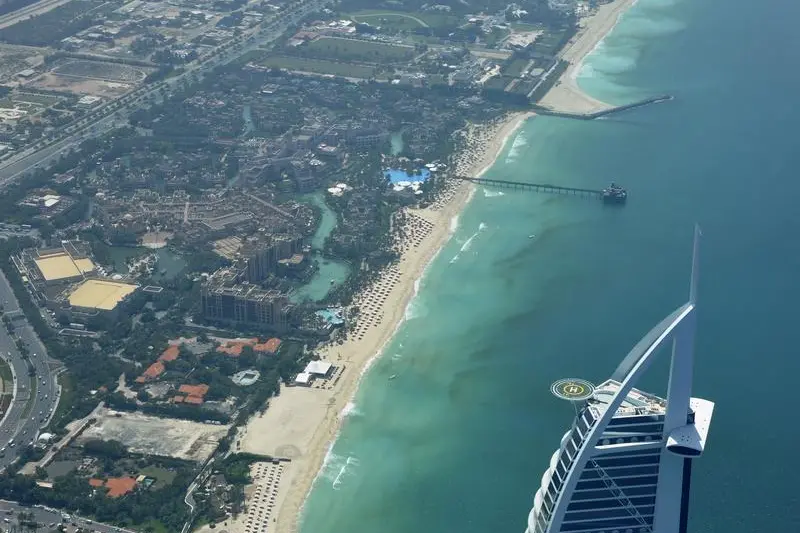PHOTO
By Shane McGinley
The United Arab Emirates (UAE) has the potential to be a “big market” for smartphone ride-sharing applications targeted at private helicopters and jets, but would need to develop the necessary logistics to support this market, according to the chairman of the Middle East and North Africa Business Aviation Association (MEBAA).
Uber tapped the market last year with the launch of a helicopter service, named UberChopper, in the UAE that offered temporary services to Formula 1 fans to fly them from Dubai to Abu Dhabi for the Grand Prix race. At the time, Uber said the app proved popular and that the service could become permanent.
Ali Ahmed Alnaqbi, MEBAA’s founding chairman, said there is appetite for ride-sharing apps for consumers willing to pay to avoid long commutes and traffic on the roads. “I think there would be huge potential for helicopter services here, especially when cities are becoming congested,” he said.
However, he said the infrastructure needed to make it a reality is currently underdeveloped. Other considerations would be ensuring there was enough authorised landing space to make it feasible for a permanent service to be launched.
“Now most of the high rise buildings are provided with helipads for services, but it is a very premature market. It is very interesting for commercial use. I think it is something that is unavoidable,” he told reporters at a media event in Dubai last week.
While services similar to UberChopper have been trialled in France and Brazil, Alnaqbi said the Middle East should take its own initiative and lead the way in the development of a permanent version of such services.
“We don’t have to wait for other people in other parts of the world, we are already thinking about it and planning for it. That is why all the high rise buildings… now they have helipads in a lot of locations.
“The GCAA (Gulf Civil Aviation Authority), one of the plans they talk about is helipad authorisation... So that is a big market coming up and part of the general aviation,” he said.
Plans for a helicopter taxi service in Dubai were investigated in 2007 but the onset of the financial downturn saw plans put on hold. An article in Dubai-based newspaper The Khaleej Times in June 2008 claimed one of the obstacles was the lack of authorised landing spaces. The report said around 1,000 sites existed in the UAE but most had not been approved under international standards.
Jetsetters
Another potential market for ride-sharing apps is private jet services in the region and beyond.
California-based app Uber has already trialled UberJet, offering wealthy film fans traveling to the Cannes festival the chance to book a private jet trip through its smartphone app, and more permanent services have been unveiled in Europe and the United States recently.
Alnaqbi said MEBAA members believe such services dedicated to the aviation sector would be very popular in the region.
“I think this market will require some system where some sort of utilisation of the empty leg is important. There is demand coming from the association,” he said, explaining that an empty leg is when a customer charters a private jet for a one-way trip and the aircraft is left empty on the return journey.
Alnaqbi was in Dubai to promote the MEBAA Show 2016, which takes place at Dubai World Central Airshow Site on December 6. The association expects the business aviation sector to grow 9 percent in the Middle East this year and this has been reflected in the show, which has seen a 10 percent rise in registered exhibitors compared to two years ago.
Of the 460 exhibitors expected, 30 percent will be from Europe and 27 percent from the United States. The show is also expecting around 9,000 visitors over the course of three days.
© Zawya 2016





















